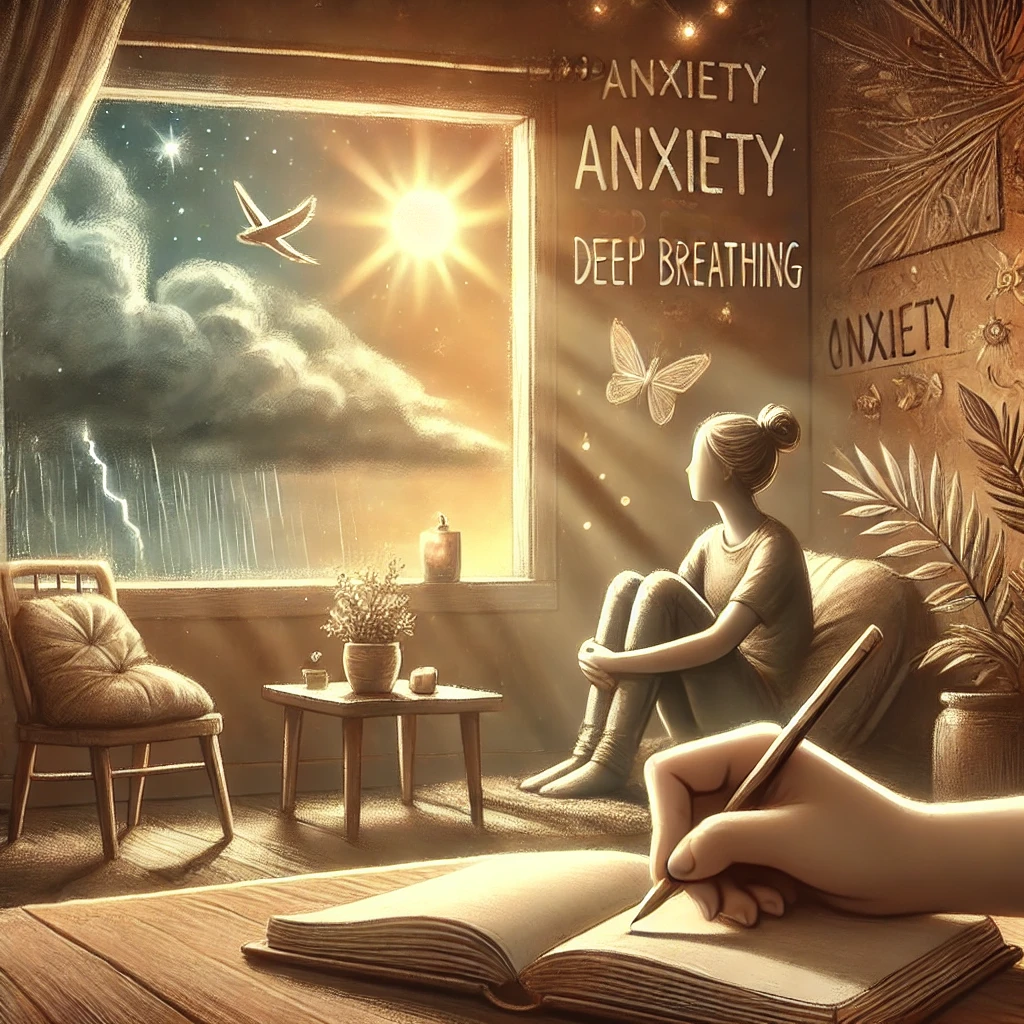Mindfulness for Beginners: A Simple Guide to Getting Started

Mindfulness is the practice of purposely focusing your attention on the present moment—and accepting it without judgment. It involves being fully aware of whatever is happening in the moment, including your thoughts, feelings, bodily sensations, and the surrounding environment.
This ancient practice has roots in Buddhist meditation, but has evolved into a secular approach that's now widely embraced for its numerous physical and psychological benefits. Mindfulness isn't about clearing your mind or achieving a state of eternal calm—it's about becoming aware of what's happening right now.
Benefits of Mindfulness Practice
Regular mindfulness practice can lead to:
- Reduced stress and anxiety
- Improved focus and concentration
- Better emotional regulation
- Enhanced self-awareness
- Improved sleep quality
- Decreased rumination (overthinking)
- Lower blood pressure
- Reduced chronic pain
- Strengthened immune system
- Greater overall sense of well-being
Basic Mindfulness Techniques
Mindfulness can be practiced in various ways:
Mindful Breathing: Focus attention on your breath—the inhale and exhale. When your mind wanders (which it will), gently bring your attention back to your breathing without judging yourself.
Body Scan: Systematically focus attention on different parts of your body, from your toes to the top of your head, noticing any sensations without trying to change them.
Mindful Observation: Choose an object in your environment and focus on watching it for a few minutes. Notice its colors, textures, and other details without analyzing or judging.
Mindful Listening: Close your eyes and notice the sounds around you. Try to identify different sounds without labeling them as "good" or "bad."
Starting Your Mindfulness Practice
Begin with these simple steps:
- Start small: Begin with just 5 minutes of practice daily and gradually increase as you become more comfortable.
- Choose a consistent time: Practice at the same time each day to build a habit, whether it's first thing in the morning or before bed.
- Find a quiet space: Select a location where you're unlikely to be disturbed during your practice.
- Get comfortable: Sit in a position that's comfortable but alert—whether in a chair, on a cushion, or even lying down if needed.
- Use guided meditations: As a beginner, guided meditations can help structure your practice. Many apps and online resources offer these.
Common Challenges for Beginners
Mind Wandering: This is normal and part of the process. When you notice your mind has wandered, gently return to your focus without self-criticism.
Restlessness: If sitting still is difficult, try a walking meditation or shorter sessions at first.
Sleepiness: If you tend to get sleepy, practice with your eyes open or at a time when you're more alert.
Expectations: Let go of expectations about what mindfulness "should" feel like. Each session is unique.
Finding Time: Remember that even 5 minutes of practice is beneficial. Integrate mindfulness into daily activities like walking, eating, or showering.
Remember
Mindfulness is a skill that develops with practice. Be patient with yourself as you learn. There's no "perfect" way to practice mindfulness—what matters is showing up consistently and approaching the practice with curiosity and kindness toward yourself.
Comments (3)
-
 Sarah Thompson 3 days ago ReplyThank you for this insightful article. I've been struggling with anxiety for months now, and the mindfulness techniques you've suggested have already started to help after just a few days of practice. I especially appreciate the reminder that seeking help is a sign of strength.
Sarah Thompson 3 days ago ReplyThank you for this insightful article. I've been struggling with anxiety for months now, and the mindfulness techniques you've suggested have already started to help after just a few days of practice. I especially appreciate the reminder that seeking help is a sign of strength. -
 The section about establishing healthy boundaries with information really resonated with me. I realized I've been consuming news almost constantly, and it's definitely been affecting my anxiety levels. I'm going to try limiting my news intake to just 30 minutes in the evening and see if that helps.
The section about establishing healthy boundaries with information really resonated with me. I realized I've been consuming news almost constantly, and it's definitely been affecting my anxiety levels. I'm going to try limiting my news intake to just 30 minutes in the evening and see if that helps. -
 I've been a client at Counselling Care for about three months now, and the combination of therapy and these practical strategies has made such a difference in how I manage my anxiety. Dr. Phillips, your approach to anxiety as something to have a "healthier relationship with" rather than eliminate completely was a game-changer for me. Thank you!
I've been a client at Counselling Care for about three months now, and the combination of therapy and these practical strategies has made such a difference in how I manage my anxiety. Dr. Phillips, your approach to anxiety as something to have a "healthier relationship with" rather than eliminate completely was a game-changer for me. Thank you!





